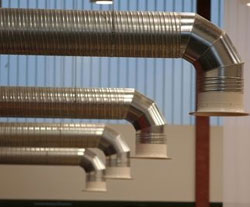
Categories
- Home
- Types Of Gas Ventilation
- Equipment Gas Ventilation
- Gas Appliances Ventilation
- Gas Boiler Ventilation
- Gas Heater Ventilation
- Gas Meter Ventilation Requirements
- Gas Pipe Ventilation
- Gas Range Downdraft Ventilation
- Gas Roof Ridge Ventilation
- Gas Stove Ventilation
- Gas Ventilation Grills
- Gas Ventilation Products
- Gas Ventilation Units
- Heating System Gas Ventilation
- Marine Oil And Gas Ventilation
- Mechanical Gas Ventilation Systems
- Mobile Home Gas Ventilation
- Natural Gas Ventilation
- Roof Ventilation
- Soil Gas Ventilation
- Type B Gas Ventilation
- Underfloor Gas Ventilation
- Gas Ventilation Explained
- Gas Ventilation Suppliers
Gas Appliances Ventilation
Every year there are people that perish due to the mishandling of gas leaks in their homes, which are incidents that can be perfectly avoided. At times, it might be the installer’s fault because they didn’t connect the pipes properly and carbon monoxide eventually started to pollute the air in the house. In other instances, homeowners fail to install gas appliances ventilation to help the air circulate properly within their home. This can be particularly fatal if there are family members who are suffering from different illnesses, or are simply more vulnerable to external changes.
Checking Gas Appliances Ventilation
Before gas is capable of going through combustion, it needs to make sure there is enough oxygen in the atmosphere for combustion to occur. If there isn’t enough air or oxygen, then carbon monoxide and other dangerous gases will be produced, which can pose a hazard to you and your family. This is the main reason why industrial settings, such as factories and restaurants, need to follow strict guidelines enforced by the local authorities. In addition, in order to avoid poisoning and to ensure gas appliances ventilation, there are a few things that you can check, such as:
- Blockage in the chimney (if there is one)
- Equipment and appliances were not installed correctly
- Gas appliances ventilation system is not working as it should
- Lack of air ventilation in the room
- Lack of proper maintenance of you gas appliance and equipment
Importance of Gas Ventilation
Without a doubt, installing gas appliances without the proper gas ventilation can be hazardous in the long run. If you happen to have the installer come to your home to perform the installation, it’s their responsibility to make sure they are meeting the requirements stated by the law. Gas appliances ventilation is something that has to be taken seriously, and there should be no room for error, since combustion gone wrong can affect your family’s health directly. The importance of gas appliances ventilation relies on two main reasons, which are:
- To allow period changes in the air supply
- To allow the flow of clean air in the area where the gas appliance is located
Moreover, the requirements might be slightly different depending on the type of gas appliance that you have.
What to Consider
Prior to having your gas appliances ventilation system installed, there are several factors that you need to take into consideration. Besides your budget, it’s important that you comprehend that ventilation is essential in any environment where gas appliances are present, and the lack of it can have serious repercussions. A few of the most important factors that you should consider are:
- Ventilation method
- Type and model of the gas appliance being installed
- Ensuring period maintenance to the entire gas appliances ventilation system
- Method of gas appliance flueing
- Different air extraction methods and their effects
